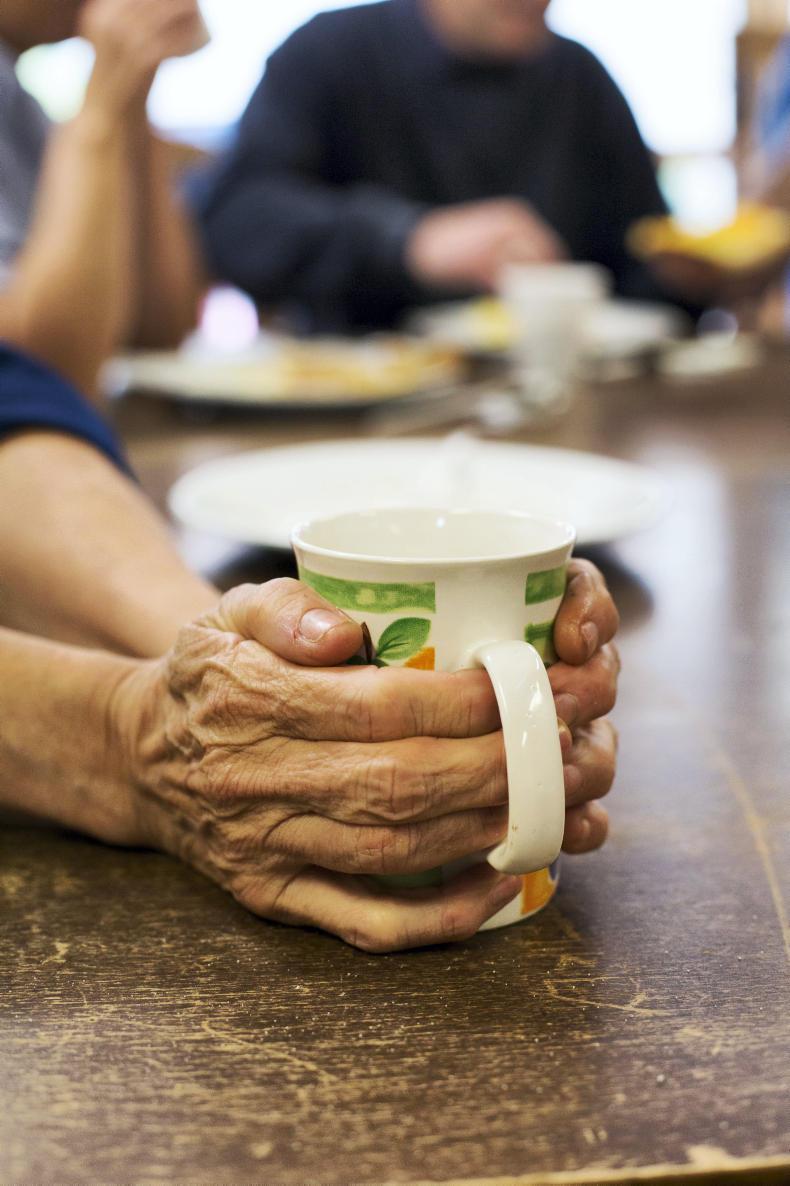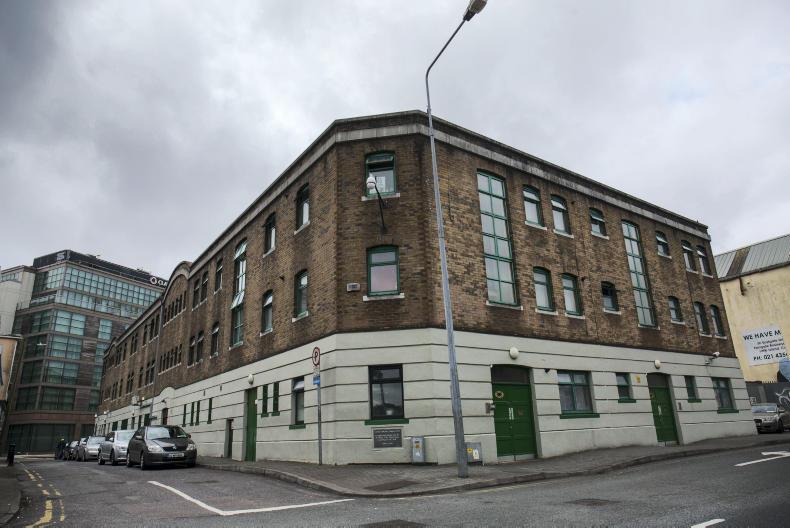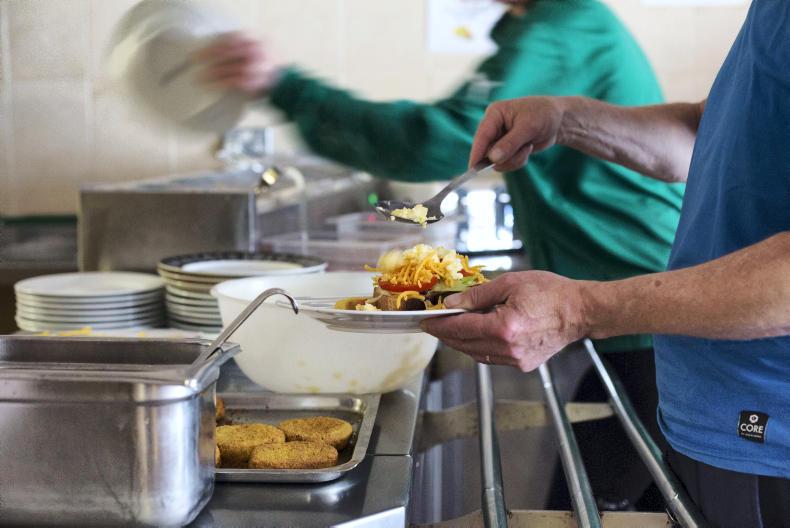The Simon Community provides support to over 16,700 men, women and children each year. The network of independent communities based across the country is supported by a national office in the areas of policy, research, communications and best practice.
Cork Simon Community
The community is reliant, as are so many other charities, on voluntary workers who come from around the world. Cork Simon has 800 volunteers and although this sounds a lot, the majority are fundraising volunteers.
Within this, there are 60 part-time volunteers and 22 full-time volunteers working directly with the homeless.
Although now a permanent member of staff, Darko Bucan initially started working in Cork Simon as a volunteer in 2013.
Originally from Serbia, Darko applied for a Croatian passport (his father is a Croat) so that he could work in the European Union. Darko explains that this initial placement covered the cost of accommodation, travel, food and a small weekly allowance.
Who needs Simon?
Cork Simon accommodates people over 18 years of age and they generally access the charity through the outreach project which is the first point of contact.
“This is Cork Simon’s most frontline programme, where you are the first point of contact for someone who just recently became homeless. We support them in any way we can, try to get them indoors and organise a bed for them.”

Because hotels and other accommodations such as B&Bs are being used to house the homeless, there is a fear there will be a spike in people sleeping rough once the pandemic subsides.
Research and communications co-ordinator with the charity Sophie Johnston outlines the stark figures which are published monthly by the Department of Housing, Planning and Local Government: “At the end of March, there were 9,907 people in emergency accommodation nationwide and 779 in the Cork/Kerry region.”
However, she points out that this is not showing the real figures as it doesn’t count people on the periphery of homelessness, such as those living with friends, or those sleeping rough, in squats and other forms of temporary accommodation.
Darko now works in Cork Simons emergency shelter.
“Pre-COVID-19, the shelter had capacity for 47 people and 15 more spaces in the ‘nighlight’, but because of social distancing, we have had to reduce it down to 35 (in the main shelter) and 10 (in the nightlight).
“The nightlight is basically a service where you get a mattress, a sleeping bag, pillow and a blanket.”
Temporary reprieve
Reports suggest that the alleviation in homelessness, due to the current availability of accommodation will see the problems intensify once the hotels reopen.
“The demand is actually less. People that previously would not have been able to access accommodation now have options that would not have been there before the pandemic.”
This is due to the fact that – with no tourism – a lot of B&Bs have offered to help out and accommodate people who have nowhere else to go.
“This was great for us (Cork Simon) as it relieved some pressure on services.

Cork Simon acknowledges that the HSE has been really responsive.
“We are able to make sure that social distancing and other coronavirus preventative measures are in place while also still accommodating everybody who presents to us.”
“Eventually it will revert, once the hotels and B&Bs go back into their own fields, the main problem will come to light again – that we need more housing.”
Sophie is also concerned. “There has been a consecutive reduction in the last two months but we need to see continuous month on month reductions.
“Right now, there are restrictions on evictions and rent increases and this could be influencing that decrease.
“When these are lifted, the number could increase again and by all accounts we are facing into recession.
“With this and issues securing mortgages, there will be more pressure on the private rental sector.”
COVID-19 impact
Darko is relieved that thus far, they have not seen any cases of COVID-19 in the shelter.
“The HSE have been really responsive. If anyone is showing symptoms, that person is able to go into one of the isolation units that have been put in place across Cork.
Social distancing is something that everyone eventually finds really hard to keep going
“Ourselves, we have done everything to respond and we have been quite fortunate that we have been able to manage really well so far.
“Social distancing is something that everyone eventually finds really hard to keep going but everyone here is taking it very seriously.
Methadone programme
Reports suggest also that another positive from this pandemic is an increase in the number of people joining methadone programmes.
Sophie explains that with the pandemic and uncertainty around working hours, there has been greater flexibility with this programme.
“Although it is a set programme and the criteria has remained the same, before the pandemic there would have been set days for the programme, now it is more flexible about when people can be seen.
If you are able to organise everything in a couple of days that really allows people to grab it and make the most of it
“People on that programme would have expressed an interest and would have started progressing through the steps before this all happened.
Both believe that this will be a long-term positive change.
The waiting list is something that puts people off, according to Darko: “If you are able to organise everything in a couple of days that really allows people to grab it and make the most of it.
“We are all people and we all have our own things that go on. It is important to remember that particularly during this pandemic.”
For more information and to
donate please click here.
Read more
New scenario, new world, new mission
From the Frontline: control the controllable
The Simon Community provides support to over 16,700 men, women and children each year. The network of independent communities based across the country is supported by a national office in the areas of policy, research, communications and best practice.
Cork Simon Community
The community is reliant, as are so many other charities, on voluntary workers who come from around the world. Cork Simon has 800 volunteers and although this sounds a lot, the majority are fundraising volunteers.
Within this, there are 60 part-time volunteers and 22 full-time volunteers working directly with the homeless.
Although now a permanent member of staff, Darko Bucan initially started working in Cork Simon as a volunteer in 2013.
Originally from Serbia, Darko applied for a Croatian passport (his father is a Croat) so that he could work in the European Union. Darko explains that this initial placement covered the cost of accommodation, travel, food and a small weekly allowance.
Who needs Simon?
Cork Simon accommodates people over 18 years of age and they generally access the charity through the outreach project which is the first point of contact.
“This is Cork Simon’s most frontline programme, where you are the first point of contact for someone who just recently became homeless. We support them in any way we can, try to get them indoors and organise a bed for them.”

Because hotels and other accommodations such as B&Bs are being used to house the homeless, there is a fear there will be a spike in people sleeping rough once the pandemic subsides.
Research and communications co-ordinator with the charity Sophie Johnston outlines the stark figures which are published monthly by the Department of Housing, Planning and Local Government: “At the end of March, there were 9,907 people in emergency accommodation nationwide and 779 in the Cork/Kerry region.”
However, she points out that this is not showing the real figures as it doesn’t count people on the periphery of homelessness, such as those living with friends, or those sleeping rough, in squats and other forms of temporary accommodation.
Darko now works in Cork Simons emergency shelter.
“Pre-COVID-19, the shelter had capacity for 47 people and 15 more spaces in the ‘nighlight’, but because of social distancing, we have had to reduce it down to 35 (in the main shelter) and 10 (in the nightlight).
“The nightlight is basically a service where you get a mattress, a sleeping bag, pillow and a blanket.”
Temporary reprieve
Reports suggest that the alleviation in homelessness, due to the current availability of accommodation will see the problems intensify once the hotels reopen.
“The demand is actually less. People that previously would not have been able to access accommodation now have options that would not have been there before the pandemic.”
This is due to the fact that – with no tourism – a lot of B&Bs have offered to help out and accommodate people who have nowhere else to go.
“This was great for us (Cork Simon) as it relieved some pressure on services.

Cork Simon acknowledges that the HSE has been really responsive.
“We are able to make sure that social distancing and other coronavirus preventative measures are in place while also still accommodating everybody who presents to us.”
“Eventually it will revert, once the hotels and B&Bs go back into their own fields, the main problem will come to light again – that we need more housing.”
Sophie is also concerned. “There has been a consecutive reduction in the last two months but we need to see continuous month on month reductions.
“Right now, there are restrictions on evictions and rent increases and this could be influencing that decrease.
“When these are lifted, the number could increase again and by all accounts we are facing into recession.
“With this and issues securing mortgages, there will be more pressure on the private rental sector.”
COVID-19 impact
Darko is relieved that thus far, they have not seen any cases of COVID-19 in the shelter.
“The HSE have been really responsive. If anyone is showing symptoms, that person is able to go into one of the isolation units that have been put in place across Cork.
Social distancing is something that everyone eventually finds really hard to keep going
“Ourselves, we have done everything to respond and we have been quite fortunate that we have been able to manage really well so far.
“Social distancing is something that everyone eventually finds really hard to keep going but everyone here is taking it very seriously.
Methadone programme
Reports suggest also that another positive from this pandemic is an increase in the number of people joining methadone programmes.
Sophie explains that with the pandemic and uncertainty around working hours, there has been greater flexibility with this programme.
“Although it is a set programme and the criteria has remained the same, before the pandemic there would have been set days for the programme, now it is more flexible about when people can be seen.
If you are able to organise everything in a couple of days that really allows people to grab it and make the most of it
“People on that programme would have expressed an interest and would have started progressing through the steps before this all happened.
Both believe that this will be a long-term positive change.
The waiting list is something that puts people off, according to Darko: “If you are able to organise everything in a couple of days that really allows people to grab it and make the most of it.
“We are all people and we all have our own things that go on. It is important to remember that particularly during this pandemic.”
For more information and to
donate please click here.
Read more
New scenario, new world, new mission
From the Frontline: control the controllable








 This is a subscriber-only article
This is a subscriber-only article










SHARING OPTIONS: